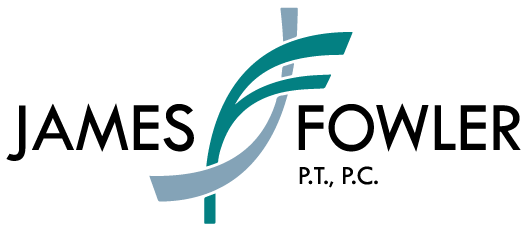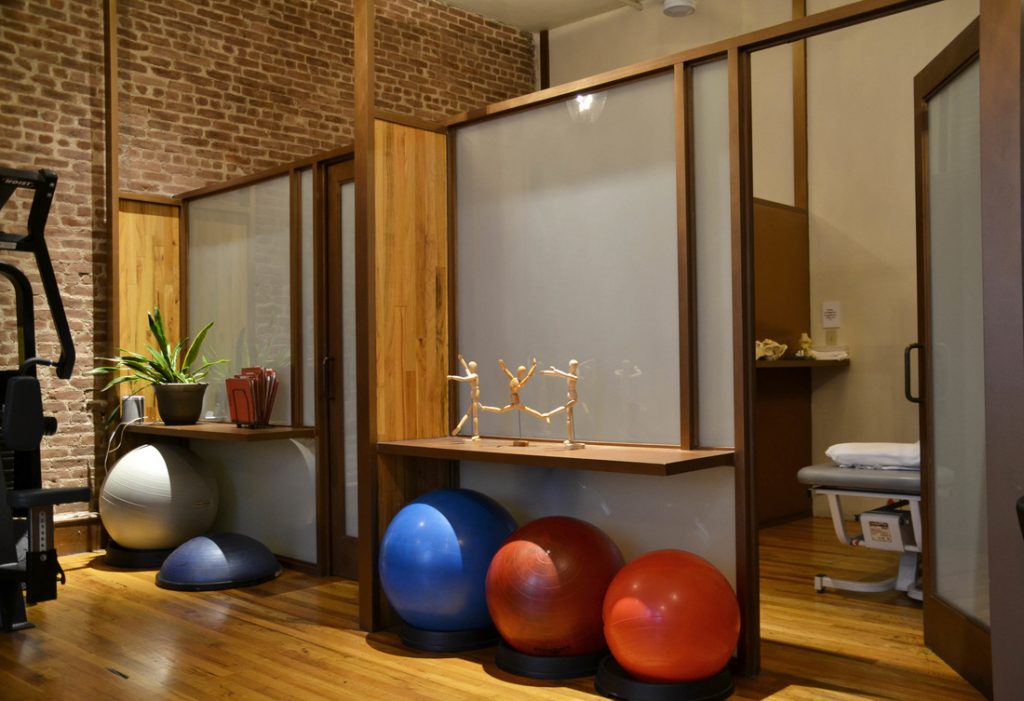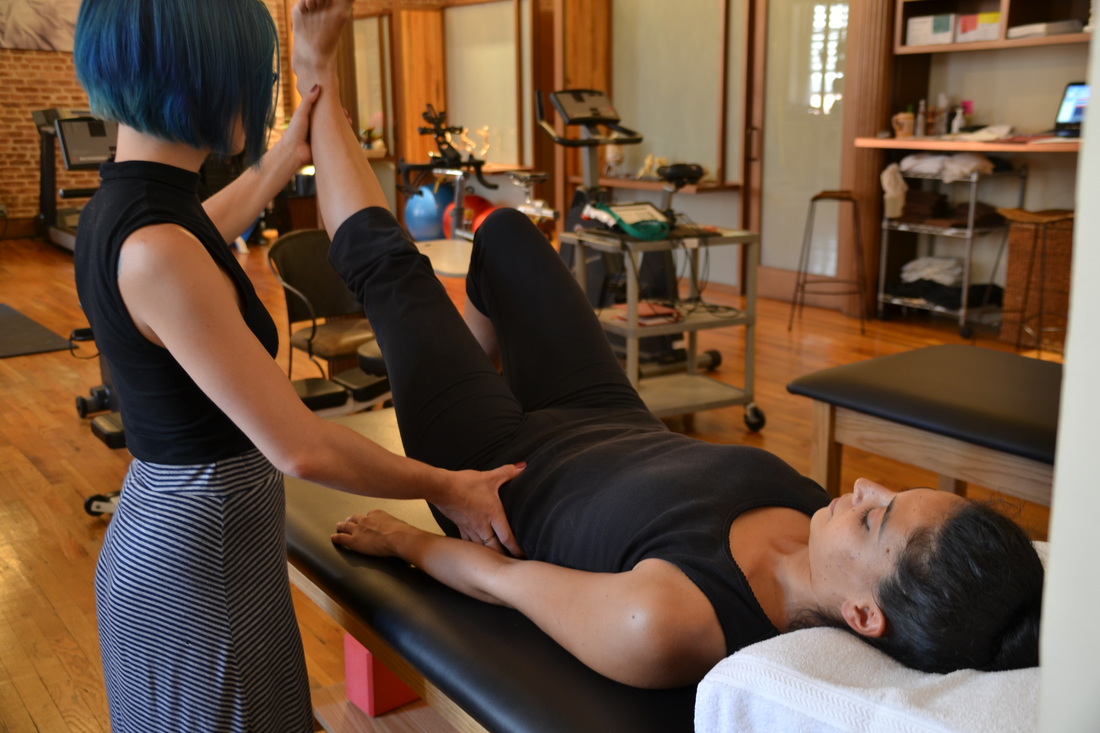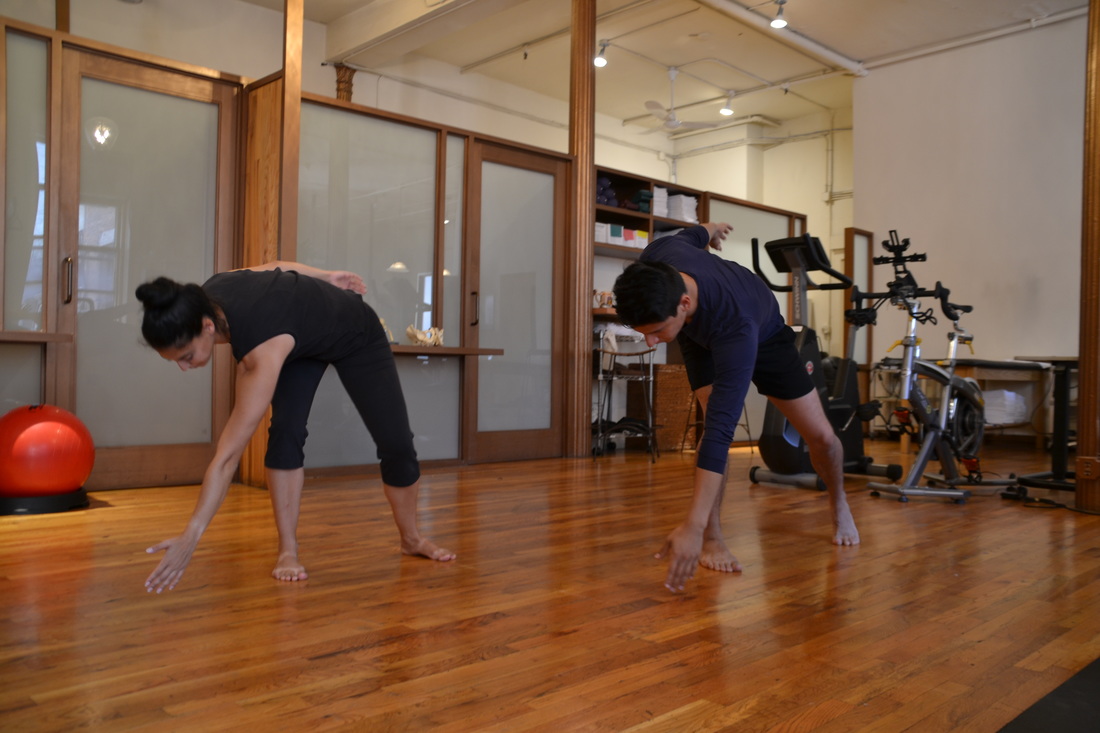Helping You Recover From Arm & Shoulder Pain
Injuries in the arm and shoulder can be powerful, as their function is so important to your quality of life. Our team - physical therapists, massage therapists, and movement analysts - will work together to improve function and mobility while reducing pain.
See How
Arm & Shoulder Injury Therapy
Located in Manhattan's Union Square, NYC
How We Help
Arm and shoulder pain can be devastating for everyday tasks, not just for participation in your company’s dodge ball league. It can be amazing how little attention we pay them- until they hurt. The rotator cuff relies on proper muscular stability and biomechanical efficiency through the scapula to allow the arm and shoulder to move freely atop the torso.
From minor tendonitis to nerve entrapment and post-surgical rehabilitation, our therapists are equipped to diagnose and maximize stability and function of the shoulder joint. See a (partial) list of injuries and conditions we treat.
If you do not see your specific problem, please feel free to get in touch with us- we're always listening.
Who We Help
Arm and shoulder injuries can happen to anyone and are typically the result of an automotive accident, sporting injury, underlying chronic condition, or unexpected accident (such as a fall).
Our therapists treat:
- Dislocation and Instability
- Fractures: Traumatic & Stress
- Ligament Tear
- Muscle Tear or Strain
- Myofascial Pain Syndrome
- Nerve Entrapment
- Post-Surgical Reconstruction
- Repetitive Strain Injury
- Sport Technique Rehabilitation
- Tendinitis
Addressing & Treating Arm & Shoulder Pain
Pain is often multi-facted, and in the case of injury, complicated by supplementary stresses and injuries to supporting muscle groups and tendons. We take a personalized approach to your treatment, always focused on you, your body, your specific symptoms, and your abilities. We will push you to the most we can and challenge your abilities, but we will never ask you to do more than what you can do. Treatment is about recovery, not about enduring pain.
Dislocation & Instability
Dislocations of of a joint occurs when a bone is forced out of its socket. This can be as a result of sudden injury or repetitive motion. After the joint dislocates for the first time, it’ll be vulnerable and prone to other episodes without proper biomechanics and postural education. Our team of skilled therapists will screen for range of motion and strength to create a safe plan of care to ensure a prompt and healthy recovery. Alongside with our team of trainers, JFPT works to ensure your understanding of the recovery process is enhanced with personalized exercise programs focused on the individual’s biomechanics and a wholistic postural re-education.
Fractures (Traumatic & Stress)
Bone fractures occur as a result of physical force or trauma to a bone greater than the bone strength itself. While the severity and location of the fracture can vary, certain precautions are taken while the bone heals. Treatment at JFPT revolves around a holistic approach to healing. Our team of therapists will assess the injury and work with you alongside our trainers to ensure supporting musculature surrounding the injury remain strong and pliable. Muscular reeducation through a combination of open and closed kinetic chain exercises tailored to the individual’s injury will be used to create a safe environment for bone density and muscular stability.
Ligament Tears
When we treat patients with ligament tears in the shoulder we think it’s important to not only treat the injured shoulder but to educate the patient on the mechanics of the the entire shoulder rotator cuff. Proper understanding of postural placement and shoulder mechanics are key to avoid re-injuring ligaments in the future. A mixture of closed chain and open chain exercises when working with shoulder ligament tear patients are key in maintaining shoulder stability.
Muscle Tear or Strain
Shoulder muscles tears can be treated a variety of ways and depend on a lot of factors, for example, if it’s a full tear or a partial tear or if it requires surgery or conservative treatment. Our main goal with muscle tears in the shoulder is reducing pain and once the injury is healed, re-building strength and range of motion.
Myofascial Pain Syndrome
When treating myofascial pain syndrome in the shoulder there are multiple treatments and techniques that we employ such as: various stretching techniques, active release manual therapy, trigger point pressure release, and progressive resistance exercises (PREs) therapy. While not every injury requires it, additional modalities may be utilized as a form of symptom control. Things like ultrasound, electric stimulation therapy, iontophoresis treatment and or phototherapy in conjunction with manual therapy are utilized to help you recover quickly.
Nerve Entrapment
Staying away from nerve entrapment of the arm and upper body requires proper spinal and scapular placement and posture. At JFPT, our team of experienced therapists will focus on conducting a holistic approach to your injury. A full cervical spine assessment will be conducted to ensure a proper diagnosis is in place. While nerve entrapment in the arm might seem like an arm problem, our team focuses in a holistic view to ensure there are no mechanical issues up the chain that could be causing referring symptoms to the arm and hand. Alongside with our trainers, JFPT therapists will created a full rehabilitative program to address postural re-education and Soft Tissue Release (STR) to create a stable and mechanically sound structure to keep you pain free.
Post-Surgical Reconstruction
The JFPT team works in close collaboration with your surgical team/orthopedists to follow each individual’s post operative protocol. No one surgery is the same thus no one post surgical protocol should be either. Tracking close progress and following post-surgical protocols helps ensure proper progress avoiding complications down the road. Our team of experienced therapist will create a sound environment to encourage healing, maintain proper range of motion and stability to get you back to full potential.
Repetitive Strain Injury
Repetitive strain injuries occur as a result of prolonged repetitive motion and or ergonomically incorrect posture. When treating repetitive strain injuries in the shoulder we not only trace the source of the injury, but provide manual therapy and corrective ergonomic adjustments to your environment. Adequate training and cueing are they key to correcting movement patterns to prevent future episodes.
Sports Technique Rehabilitation
With sports related injuries it is always important to remember that there is no “one size fits all” treatment. Every sport has a different athletic approach, technique and human biomechanics that are used to maximise performance. Getting to the root of the injury and how it affects sports technique comes in conjunction of a full assessment for the specific sport. While there is always a correlation to poor alignment and technique, it is best to access both in order to get the athlete back to full capacity.
Tendinitis
In the early stages of the treatment of tendinitis in the shoulder, we focus on controlling inflammation and relieving pain through modalities and manual therapy. This is to eventually work to regain full range of motion. After the patient has regained range of motion we work with the patient to gain better control and function of the shoulder followed by higher intensity training and agility rehabilitation.
Our Space: Dedicated to Effective Therapy & Comfort
We have been in our Union Square location for over 16 years and are proud of the reputation we have earned all over NYC. Our treatment space is located in Lower Manhattan, a block North of Union Square.
Meet Our Therapists
Our dedicated and experienced team of therapists and paramedical support staff are what empower us to help our patients.
Well-trained, experienced, and motivated to help you feel better, you can count on our team of physical therapists and massage therapists to help you move and feel better.
Get in Touch
Finding Us
James Fowler Physical Therapy is located in Union Square at 873 Broadway, between 18th and 19th street. (To buzz into building dial 012).
Hours
Monday - Friday: 7:30 am - 7 pm



